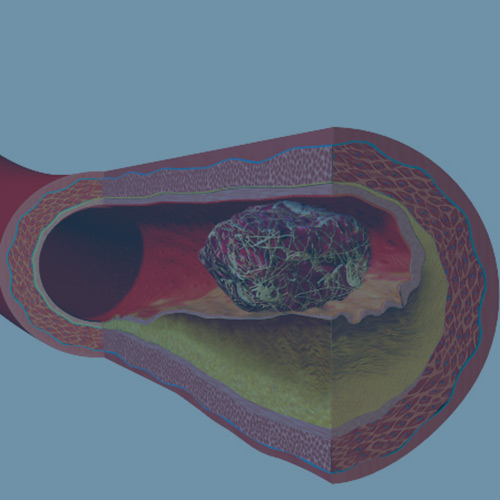Thrombophilia is a condition that causes predisposition to thrombosis, resulting from a multitude of factors, including hereditary, acquired, and environmental factors. One in six Greeks with inherited predisposition can be diagnosed from gene mutations or gene polymorphisms that encode certain blood clotting factors. The manifestation of thrombosis, as a multifactorial phenomenon, requires co-existence of at least two causes. In acquired thrombophilia, the most common factor is the antiphospholipid syndrome, which is characterized by the presence of a group of antiphospholipid autoantibodies in patients with thrombosis or pregnancy complications.
PROACTIVE TEST FOR CONGENITAL THROMBOPHILIA
- Free Protein S Antigen
- Protein C Activity
- Antithrombine (AT) Activity
- Factor V Leiden R506Q Mutation (FVLM)
- Prothrombin G20210A Mutation
- MTHFR C677T Gene Mutation
- MTHFR Α1298C Gene Mutation
ANTIPHOSPHOLIPID SYNDROME TEST (APS)
- Anticardiolipin IgG Antibodies (aCL)
- Anticardiolipin IgM Antibodies (aCL)
- Βeta 2 Glycoprotein 1 Antibody IgG
- Βeta 2 Glycoprotein 1 Antibody IgM
- Lupus Anticoagulant (LA)
FULL THROMBOPHILIA TEST
- Blood Count
- Prothrombin Time (PT)
- Activated Partial Thromboplastin Time (APTT)
- Firbinogen
- Resistance to Activated Protein C (APC –R)
- Lupus Anticoagulant (LA)
- IgG Anticardiolipin Antibodies
- IgM Anticardiolipin Antibodies
- Βeta 2 Glycoprotein 1 Antibody – IgG
- Βeta 2 Glycoprotein 1 Antibody – IgM
- Protein C Activity
- Free Protein S Antigen
- Antithrombine (AT) Activity
- Factor V Leiden R506Q Mutation (FVLM)
- Prothrombin G20210A Mutation
- MTHFR Α1298C Gene Mutation
- MTHFR C677T Gene Mutation





